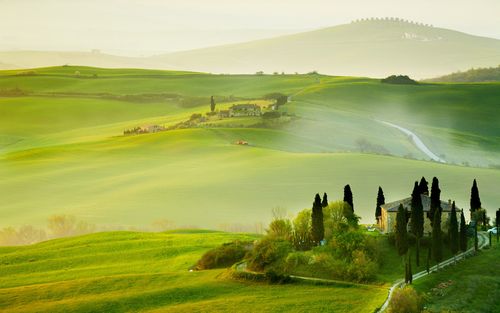Preserving Cultural Traditions: Why It’s Important
The preservation of cultural traditions is vital to the survival of any culture. Culture is defined as the beliefs, customs, and practices of a particular group of people. In many cases, culture is the foundation of a society’s identity and helps its members understand who they are and where they come from.
However, many cultural traditions are disappearing with time, globalization, and modernization. The reasons for this vary, but the consequences are clear. Lost traditions mean lost history, meaning that future generations will be deprived of a fundamental understanding of their past.
Preserving cultural traditions is not an option but a responsibility. It’s essential to maintain traditions to enable us to remain grounded and united as a people. Here are the key reasons why preserving cultural traditions is crucial:
Cultural Heritage
Culture is a vital part of a country’s heritage, acting as a marker of historical identity. Preserving it allows us to learn about our ancestors’ daily lives and gives us detailed insights into how they saw the world.
It can also act as a tool for tourism, bringing visitors from around the world, boosting our economy, and putting our country on the global map. Countries like India, China, and Japan frequently use their cultures to attract tourists from around the world.
Social Cohesion
Culture is a key building block of society, acting as a foundation for identity, meaning, and social norms. Traditional beliefs and practices have the power to bring people together and unify them under a shared worldview.
Preserving cultural traditions is an essential step in social cohesion, creating a sense of belonging among individuals, communities, and nations. It is particularly crucial in developing countries where social unrest and conflict are common.
Preserving Indigenous Knowledge
Indigenous knowledge refers to the unique knowledge and skills gathered by a particular group of people, accumulated through centuries of existence. This knowledge is often closely linked to land, language, and cultural practices.
By preserving cultural traditions, we effectively safeguard the indigenous knowledge of a community, ensuring that it is not lost or destroyed. This knowledge is often crucial in environmental conservation, healthcare, and sustainable development.
Conclusion
Preserving cultural traditions is an essential step towards preserving our past, maintaining our identity, and ensuring social cohesion. By doing so, we safeguard the indigenous knowledge accumulated over centuries, ensuring that it is not lost or destroyed.
The responsibility of preserving our culture is not just a government or community responsibility; it’s also an individual responsibility. We must all do our part in preserving our cultural heritage, from learning our native languages to participating in traditional cultural events.
Let’s embrace our cultural traditions and preserve them, safeguarding our past and present, and securing our future.
(Note: Do you have knowledge or insights to share? Unlock new opportunities and expand your reach by joining our authors team. Click Registration to join us and share your expertise with our readers.)
Speech tips:
Please note that any statements involving politics will not be approved.
